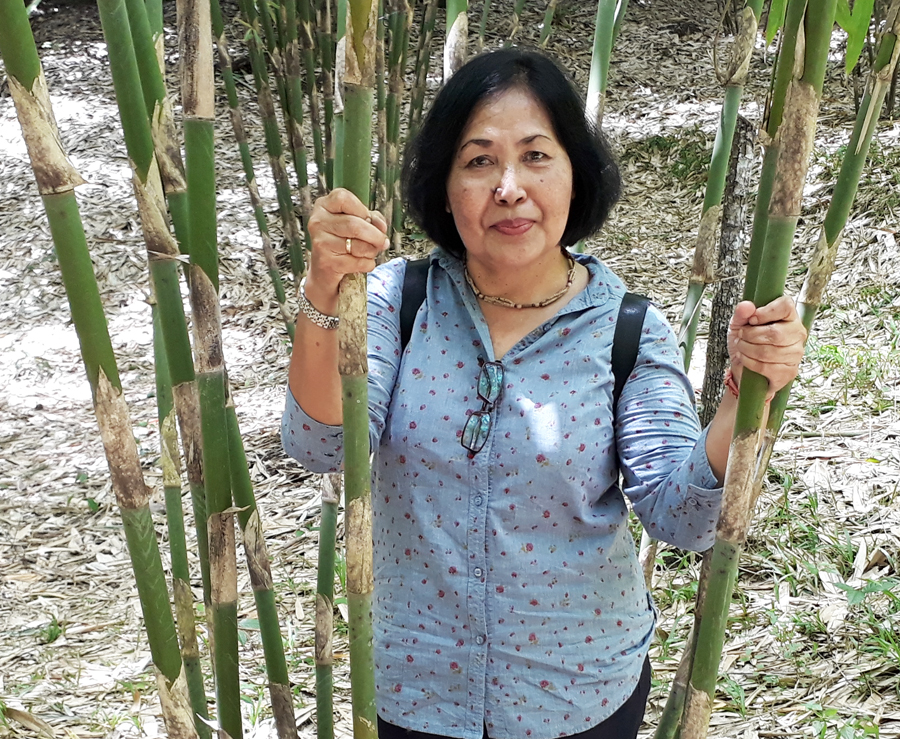Biografi
The name Pande Ketut Diah Kencana, born in
Singaraja on November 18, 1958, the 4th child of 8 siblings. Old man, Alm. Drs.
I Wayan Beratatapa (Father) and the late. Dra. M.T. Suastini (Mother), as a
Dose staff member at IKIP Singaraja, now Ganesha University. Complete
Education:
complete undergraduate education in 1985 at the
Faculty of Agriculture (FP) of Udayana University, the field of Agricultural
Engineering with a research topic: Effect of Shelf Life and How to Cut Against
the Yield of Kananga Flower Essential Oil.
complete master's education in 1992 at the Bogor Agricultural University (IPB) in
the field of Postharvest Technology with the research topic: Effect of Shelf
Life and Section Cut on Two Types of Bamboo Shoots on the Quality of Canned
Bamboo Shoots.
complete doctoral education in 2009 completed his
education at Brawijaya University (UB) in the field of Agricultural Product
Technology, with the research topic: Post-harvest Physiology of Bamboo-Hard
Bamboo Shoot (Gigantochloa nigrociliata BUSE-KURZ) Fresh-cut. From 1986 until
now, permanent lecturer at the Faculty of Agricultural Technology, Udayana
University in the Agricultural Engineering Study Program (TEP). In the research
of Strata-2 and Strata-3 taking the topic of bamboo for food, because bamboo is
a plant that is generally intended for conservation of land and water, because
of its ability to bind soil aggregates and store water is quite high, compared
to other plants, besides that, bamboo is considered not yet a good priority
from among academics, government and business actors, and is considered
synonymous with poverty, so bamboo is neglected. To date 17 products have been
derived from stoic bamboo, such as bamboo shoots (vacuum, fermentation, dry,
flour, fresh, boto packaging), bamboo stems (charcoal, briquettes and liquid
smoke grade 3 and 1), bamboo leaves for tea . For this reason, the utilization
of bamboo derivative products from the research results began in early 2004,
starting from the origin of the growth of bamboo tabah in the Pupuan Tabanan
area of Bali.
Activities ranging from upstream such as nursery, planting, maintenance and
post-harvest bamboo shoots and stoic bamboo stems. The activity upstream was by
forming a group of farmers with the name of the Alamah Sejahtera Bamboo Farmer
Group with legality, and currently there are 35 farmer groups already
established in Bali (Tabanan, Gianyar, Bangli, Badung, Buleleng, Jembrana),
Central Lombok, Turen Malang, with calculations a group of about 1,000 farmers
are involved. For the downstream system, a Cooperative was formed specifically
for the sale of stoic products derived from Bamboo. So the bamboo development
program has undergone a Triple Helix system: Academics (studying), the
Government (giving Legality) and Business Actors (Cooperatives) selling. Seeing
a program like that, expect Universities, especially Udayana University and the
Government of Bali in particular, to be more attentive so that superior local
products can be lifted, bearing in mind the tabah bamboo products from Bali and
studied by Udayana University academics.

